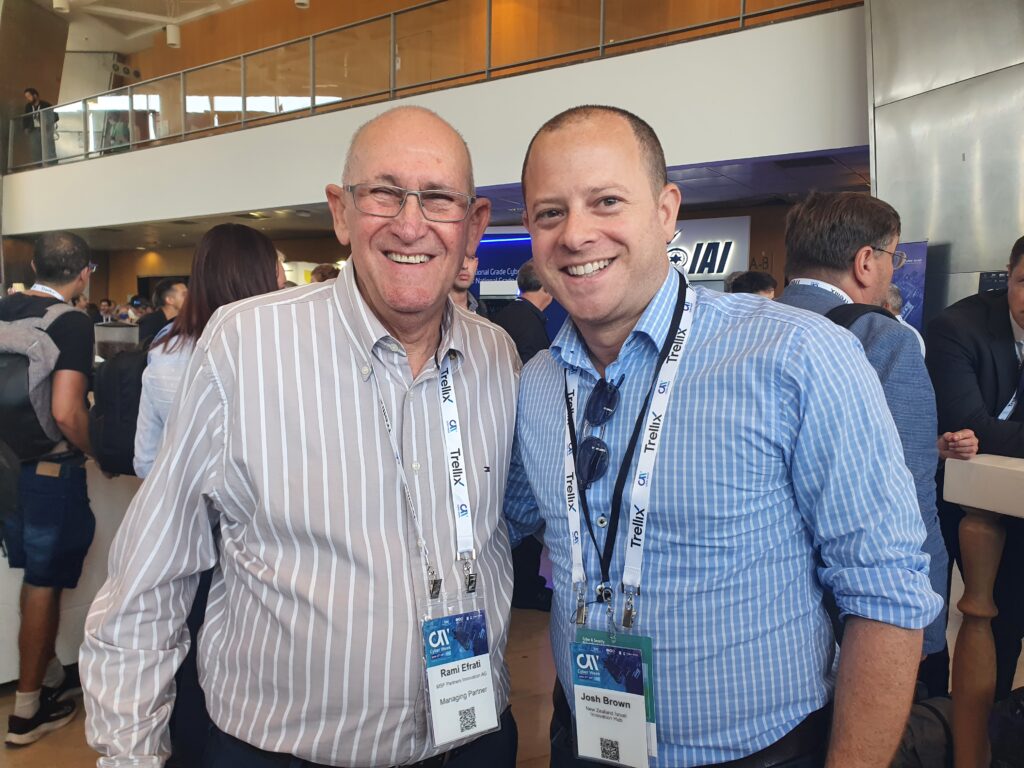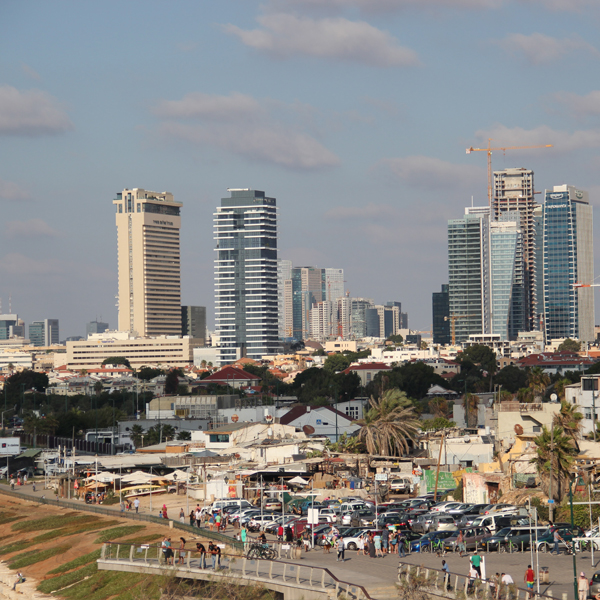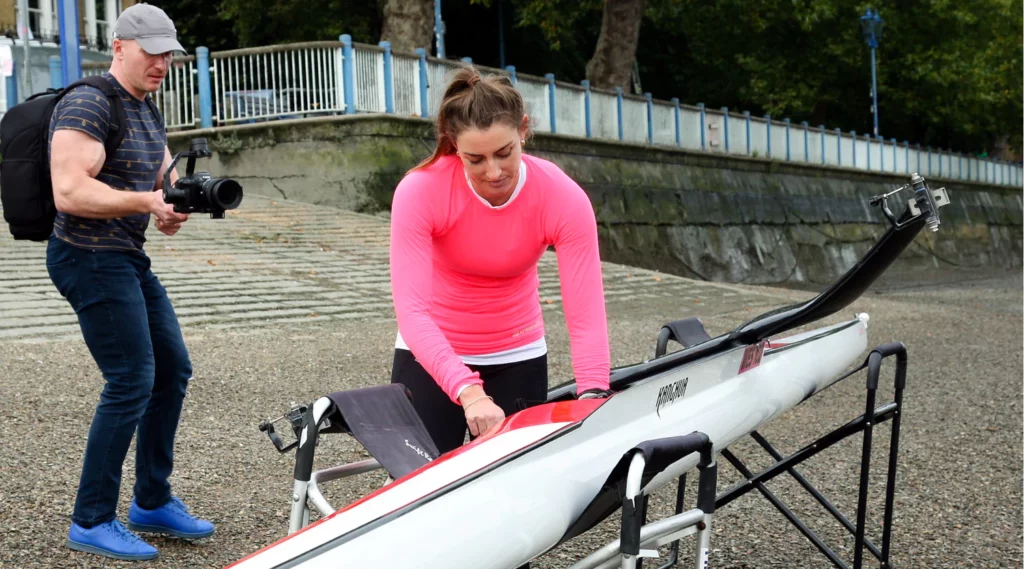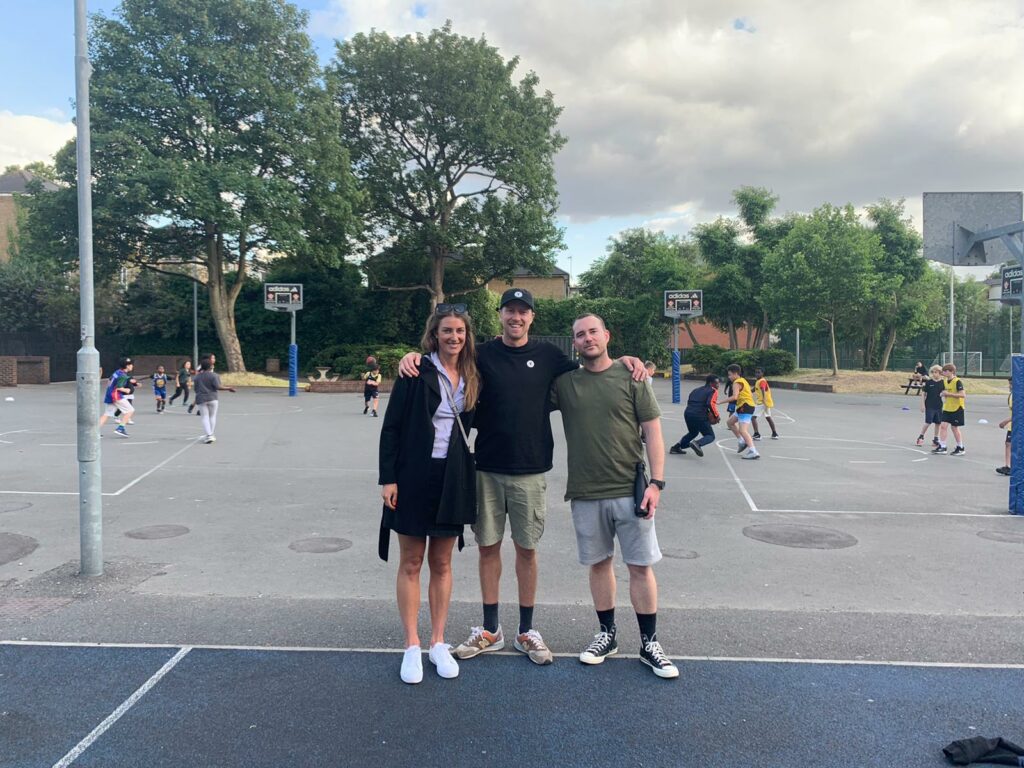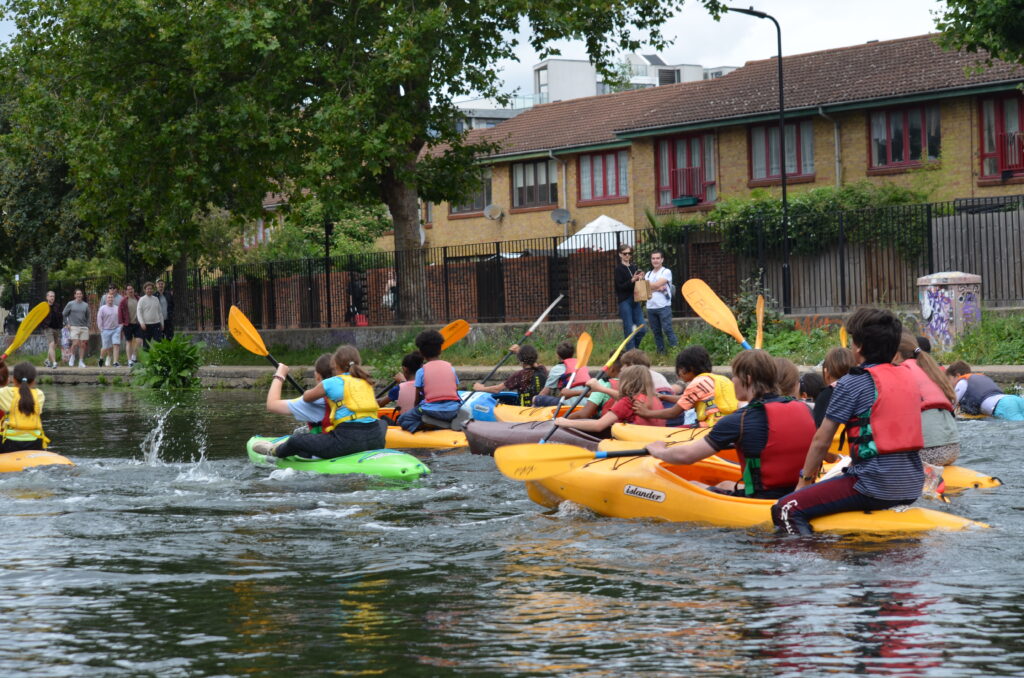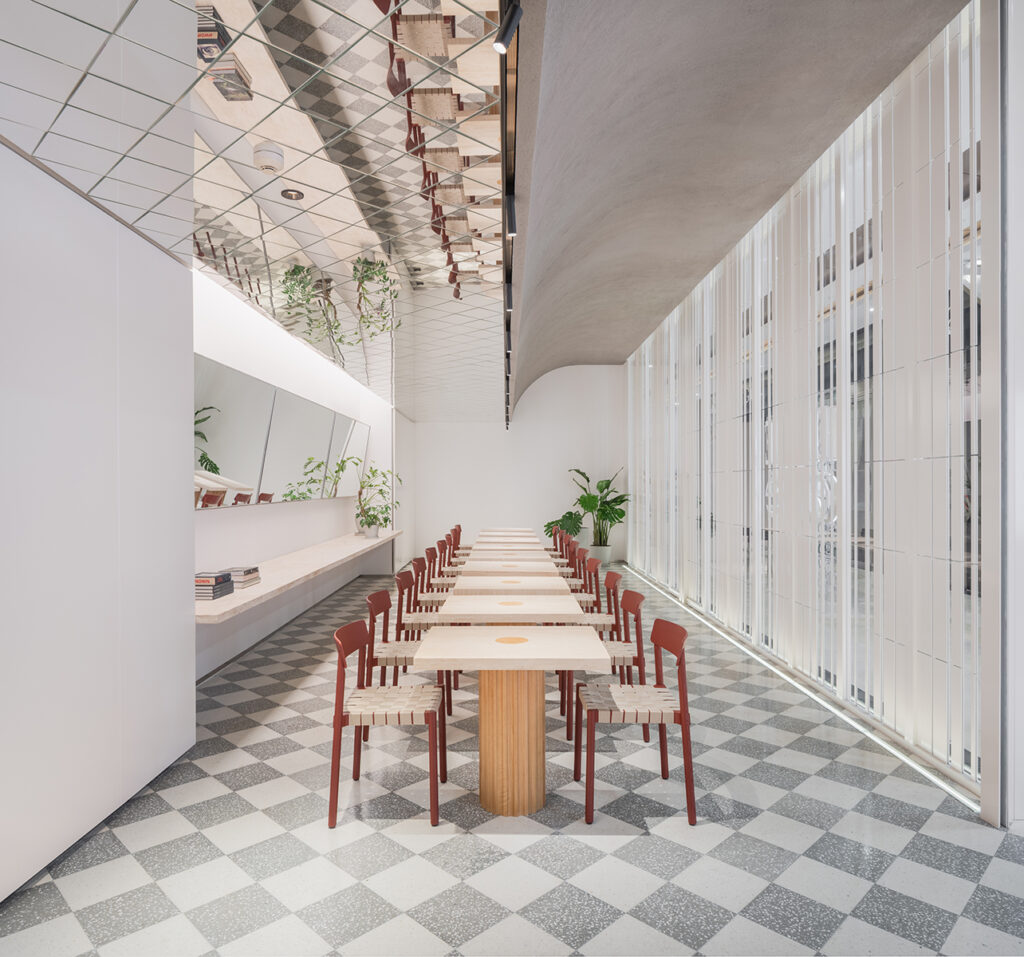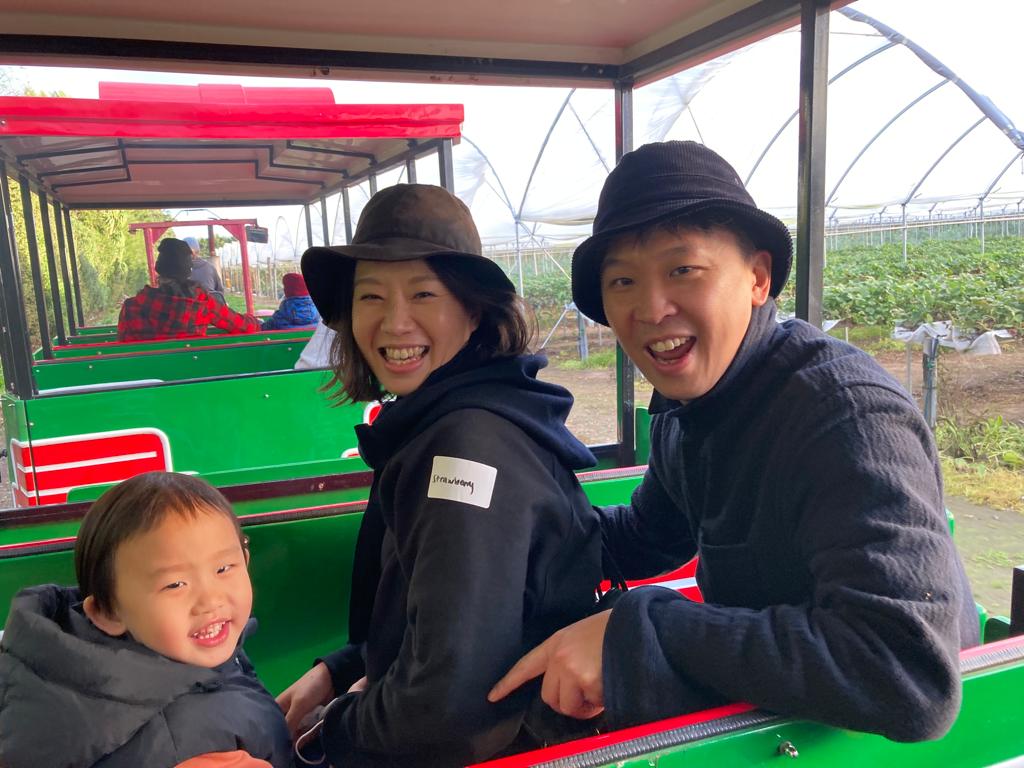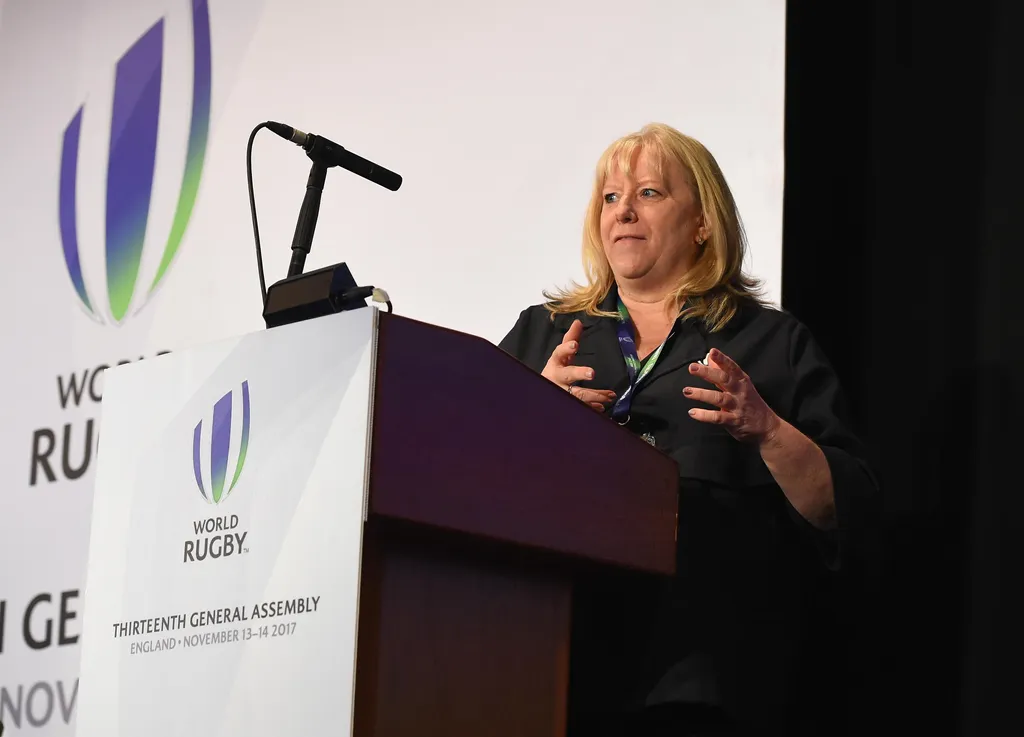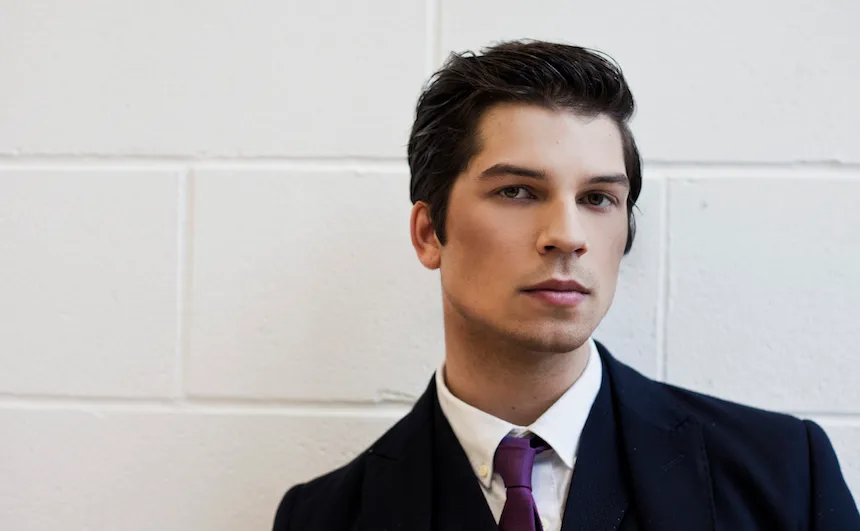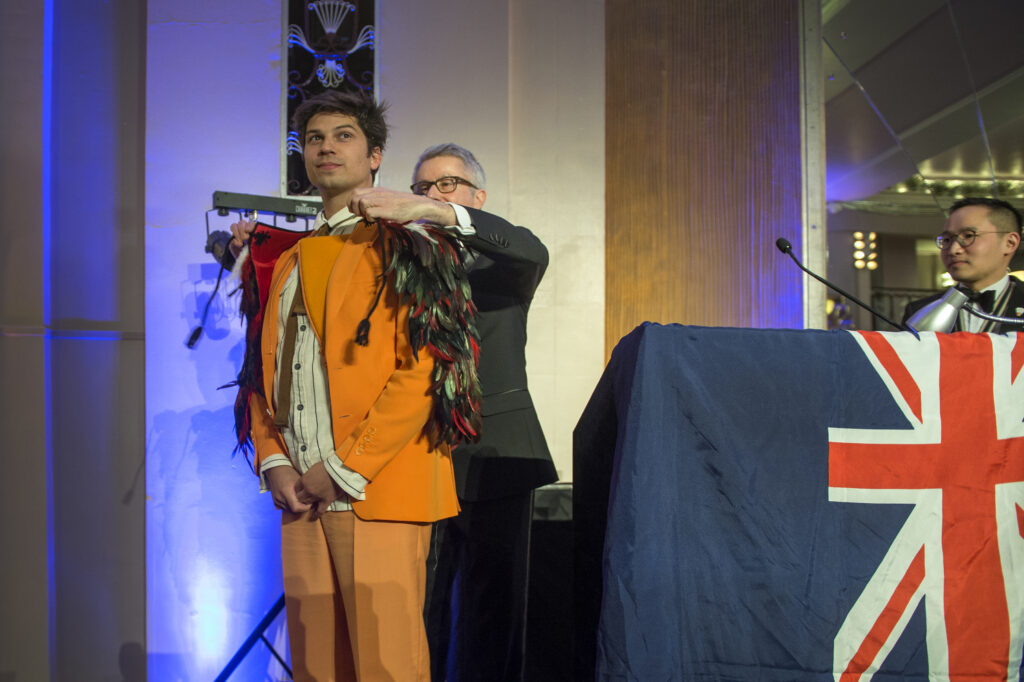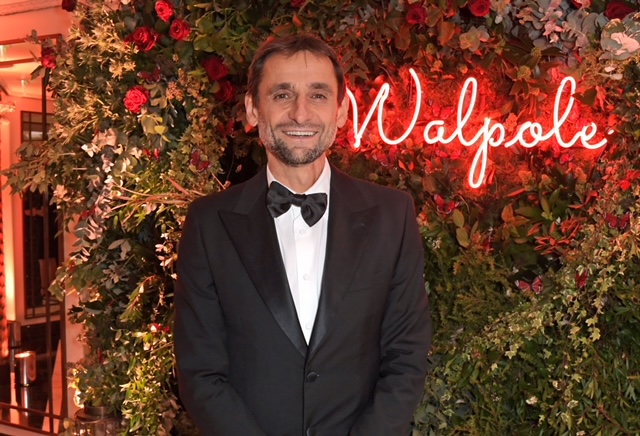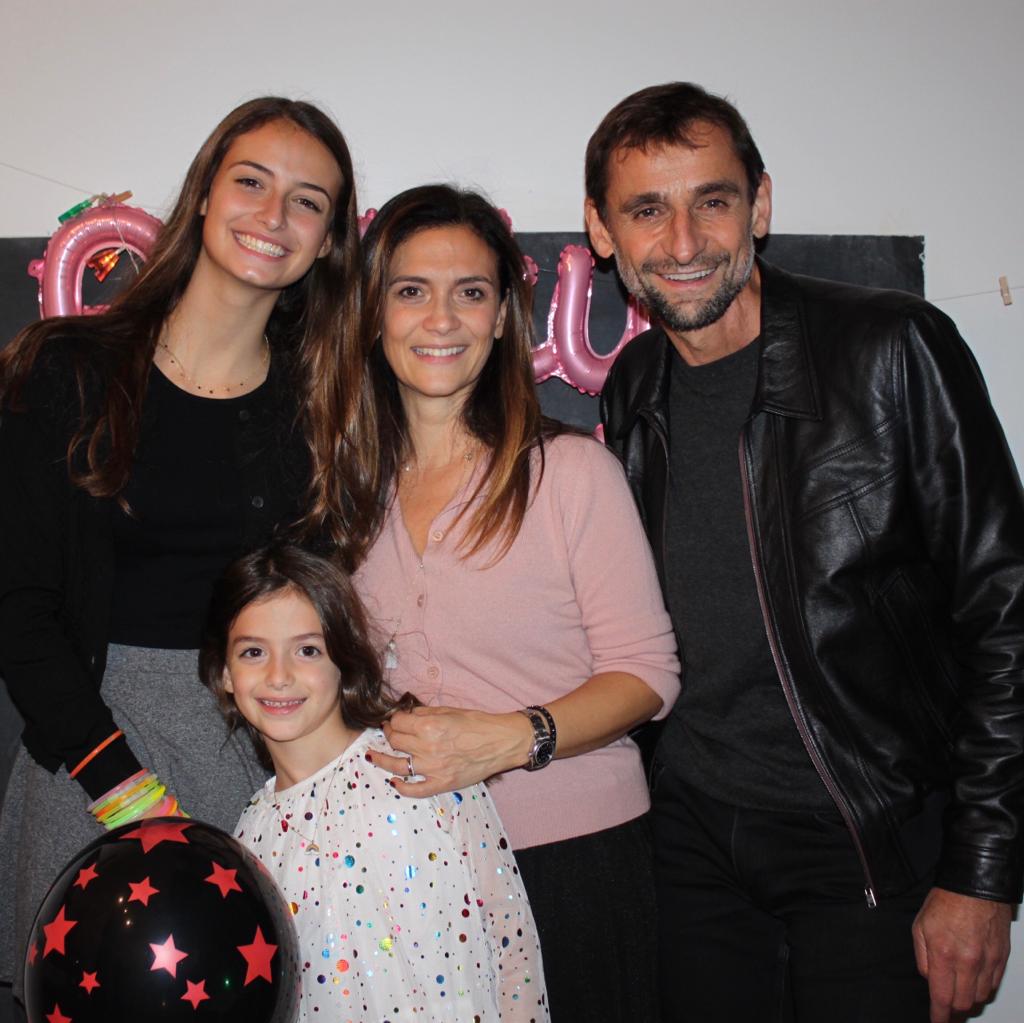Jo Fletcher Manawa, London.
How long have you lived offshore? 15 years
What do you love most about London? Access to the rest of the world, I’m going to Israel and Jordan in 2 weeks and it was far more affordable than it would have been from home. I also love London as a city – it’s so diverse and full of unique people to meet and things to do, I even get to do kapa haka here every week! Lastly, my career would not have been possible in the same way from home.
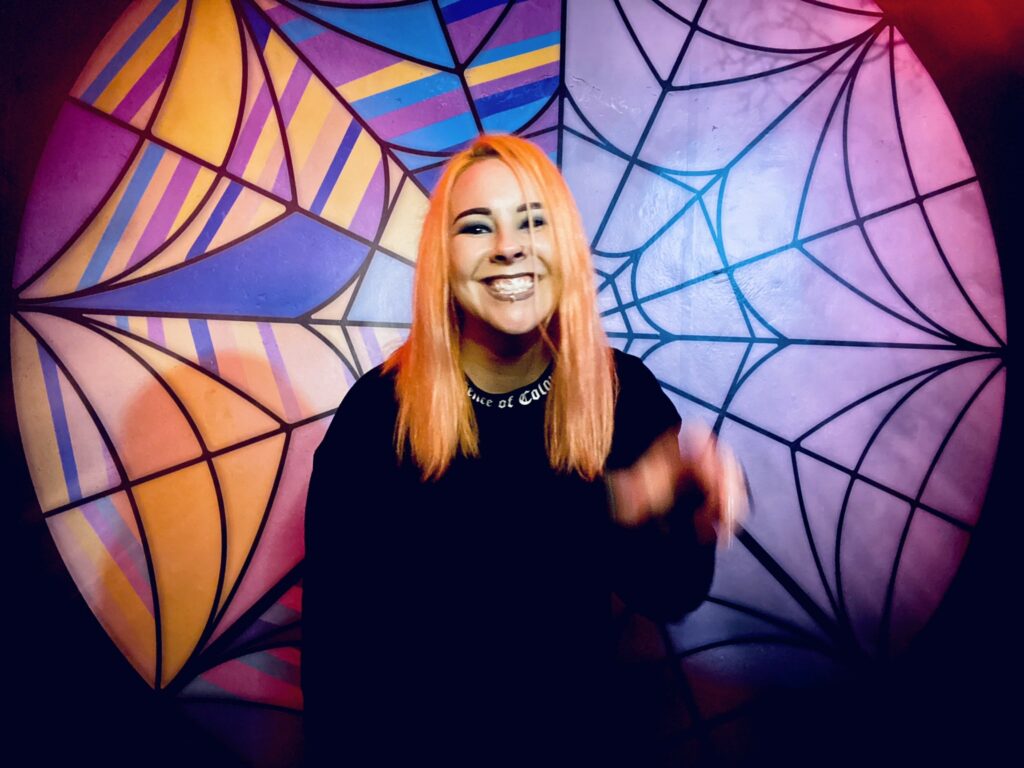
If someone was coming to visit the area, what are two places you would recommend them to visit and why? I live near Wimbledon, and although I’m not a tennis fan outside of that time of the year, I love getting in the queue once a year and going to watch when it’s on, it’s actually quite fun. My second recommendation would be to do a walking tour around the City of London, there is a beautiful, spookier side of the city there than what we get to see normally, with ancient temple ruins, Roman amphitheatre remains, unusual art galleries and collections, reminders of the great fire and the plague, tumble-down churches and tombs. It’s rather surreal.
What’s the best thing about being a Kiwi offshore? Meeting people from all over the world and working with them as part of my everyday. Seeing new places, experiencing new things.
What do you miss the most about New Zealand? In all my travelling and experiences, there is nowhere quite like home. I miss New Zealand for the people, whānau and friends, the culture, the sense of humour and the grassroots, great outdoors feel of life.
What do you think will be the significant issues or events which will command attention this year? Women’s and Trans/queer peoples rights and lives are under fire, in Iran and in the US too. War is a little close to home here too. Lastly, AI is already changing the way we work. The impact to creative industries, and to an individual’s rights to their own intellectual property will be huge.
Finish this sentence “In 2023; the world needs more….. accepting. No matter how the person next to you is different from you, we are all still human.
Jack Hu, Nanchang, China
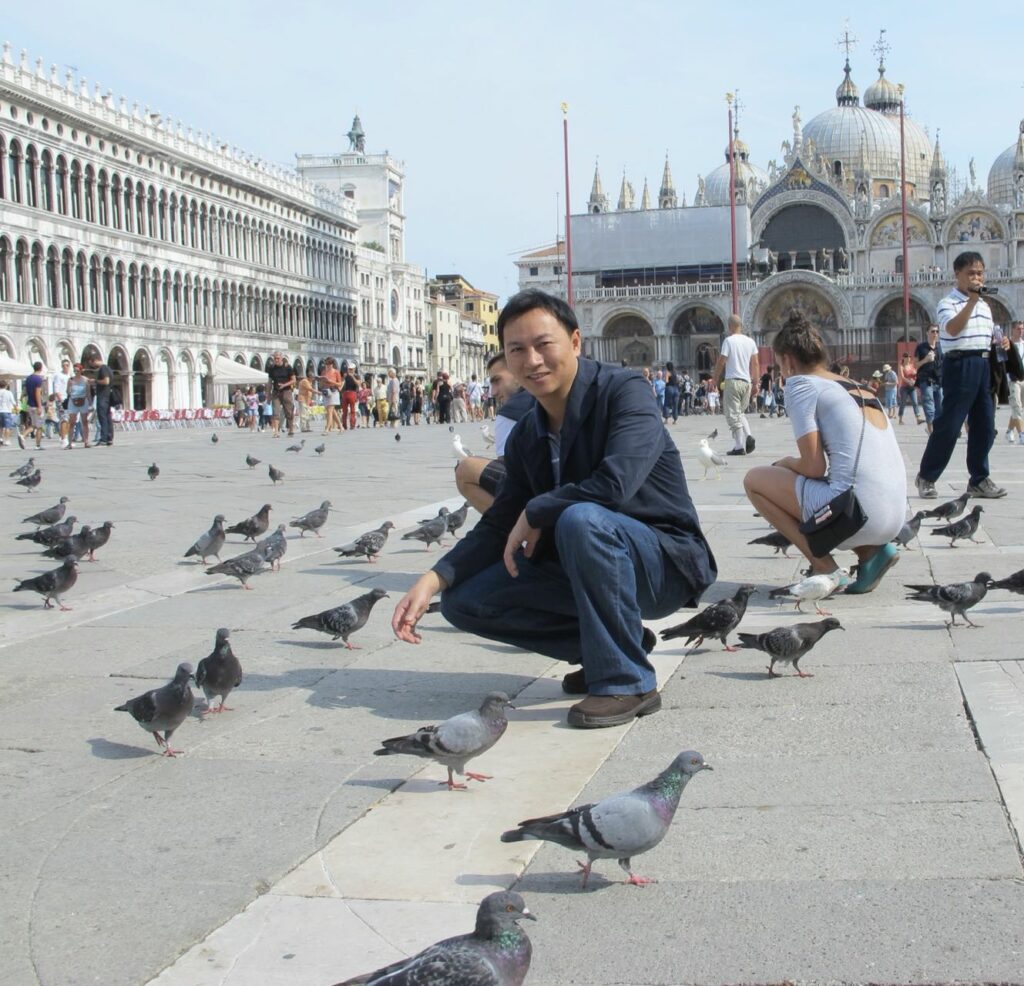
How long have you lived offshore? 2 years and counting.
What do you love most about Nanchang? I must say the Nanchang Noodles and the Simmer soup are on top of my favourites list. Both of them are local specialties that you won’t find the same in other places or on the online purchase platforms.
If someone was coming to visit the area what are two places you would recommend them visiting and why? First of all, I would recommend the Pavilion of Prince Teng, which is the landmark of Nanchang and also one of the three great towers of Southern China. I get refreshed and filled with joy after getting to the top of the pavilion every single time without failure. I would also suggest Youmin Temple. Established in A.D. 503, this temple has been in active operation for over 1500 years. It is located in the heart of Nanchang. The scenery is simple and unadorned. And there is a huge bronze bell cast during the Southern Tang Dynasty that is housed in the bell tower. I always come here to clear my mind and get inspired.
What’s the best thing about being a Kiwi offshore? As someone who has lived in both New Zealand and China, I become a better problem solver when facing clients in China. The more I integrate into the China market, the better outcome I get from my clients. Another interesting finding is that most Kiwi are environmentalists, it affects the details of my daily life even when I am offshore. I make an impact with friends and clients when presenting this concept in China, and it is much appreciated.
What do you miss the most about New Zealand? I have a strong passion for my career, hence the thing I miss New Zealand the most is the local farms and alpacas. The New Zealand alpaca represents harmony, nature and peace. The power of nature is also what I miss the most.
What do you think will be the big issues or events which will command attention this year? 2023 FIFA Women’s World Cup in NZ
Finish this sentence “In 2023 the world needs more….. positive energy and appreciation of nature.
Gabrielle (Gabbie) Tutheridge, New York City

How long have you lived offshore? 4 years… but it feels like a lifetime
What do you love most about New York? The endless opportunities; no one day is the same in NYC. There’s so much to do and see, which can be overwhelming sometimes – although I thrive off this energy.
If someone was coming to visit the area, what are two places you would recommend them to visit and why? Where do I even start? I’ll give two (touristy) spots that are must-dos.
1 – Walk from Manhattan over the Brooklyn Bridge to Dumbo, along the waterfront. Bonus points, end your stroll at TimeOut Market rooftop for delicious bites, or if you are looking for something stronger, 1Hotel Rooftop makes delicious drinks and has a fantastic view.
2 – The Edge is a viewing platform more than 1,200 feet above the ground, giving you 360 views of the New York skyline.
What’s the best thing about being a Kiwi offshore? Being able to proudly teach people about your culture, community, and country – especially if they have never heard about New Zealand before (trust me… there are people who still don’t know it’s a country).
What do you miss the most about New Zealand? I miss my Whānau dearly but I would say New Zealand as a whole – the people are hands-down the loveliest and have the best sense of humour.
What do you think will be the significant issues or events which will command attention this year? It’s more imminent than ever that we need to focus our efforts on climate change. It starts systematically through government policy for global business conglomerates to step up and make a change – this then will thread throughout society. It doesn’t start with plastic straws (sadly).
Finish this sentence “In 2023, the world needs more…..Women in power
Ben Cohen, Tel Aviv, Israel
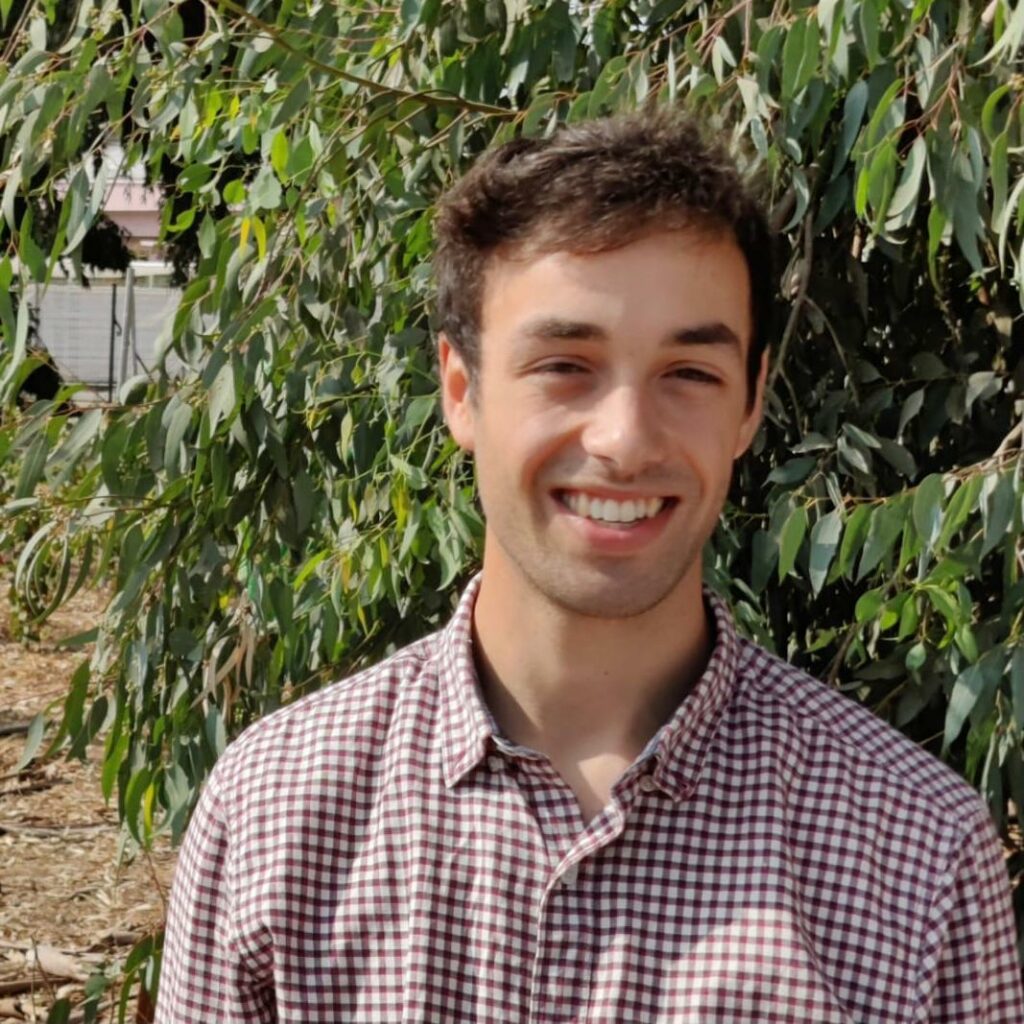
How long have you lived offshore? A year and half – it’s hard to believe, as this time has passed incredibly fast.
What do you love most about the place you’re living in right now? In Israel, I think there is a sense of social cohesion despite the varying sub-cultures and populations living within Israel. The vast diversity and melting pot of cultures enriches everyday activities, providing new perspectives. There is always new things to learn and perspectives to be share and the people are so open, inviting and friendly.
If someone was coming to visit the area what are two places you would recommend them visiting and why? Firstly, Tel Aviv. Tel Aviv showcases Israel’s economic dynamism and the heart of the startup national High-tech scene. Start-up’s pioneering advancements in finance, healthcare, agriculture, AI, and sustainability among various other industries are concentrated around Tel Aviv, each advancing potential solutions towards global challenges that anticipate us. That said, at sundown the city transforms to resemble a much smaller albeit, New York or London, with an energetic nightlife matched by the Israeli populous spontaneity and positive nature to maximise their daily experiences and make the most of each, and every moment.
Second? It would have to be Jerusalem. It’s a must-see for any person visiting the country. The city’s combination of modern architecture combined with some of the world’s oldest architecture is a sight to behold. The city’s culture is multilayered with adherents of the three main Abrahamic religions living alongside one another. This is complemented by the markets, street performers, art and history at every corner. Jerusalem derives its meaning as “Yeru” to see and “Shalem” meaning peace or complete, and it definitely provides the complete experience for all to see upon visiting.
What’s the best thing about being a Kiwi offshore? Pertaining to being a Kiwi in New Zealand, a solid chunk of the Israeli population has very positive views about New Zealanders. Many have even travelled to New Zealand and perhaps wish that Israel were a bit more like New Zealand in various aspects. We have a great reputation here! I wish that more New Zealanders made the trip to Israel to experience for themselves the hospitality along with the vast diversity and richness of the Israeli culture, traditions, and lifestyle.
What do you miss the most about New Zealand? The landscape, I took it for granted for so many years and upon seeing it again I feel the magic so many tourists experience firsthand. Travel provides perspective and a greater appreciation for what you have, and I’d recommend it to anybody at any stage of life they are in
What do you think will be the big issues or events which will command attention this year? The emergence of ChatGPT and various additional AI tools are bound to be transformative to the way we live our lives. Despite the fears of change, we can expect the technology’s continual incorporation into our daily lives, and I am optimistic about the enhancement they will bring and the solutions they will offer to meet the challenges we face. Israeli companies are at the forefront of the development of cutting-edge AI technologies, and we can already witness the use of AI improving healthcare patient outcomes, predictive agriculture, computing capabilities and beyond.
Finish this sentence “In 2023 the world needs more…..crossover between different peoples so that we may truly begin to understand one another. I believe that should New Zealanders make the long journey here, they are guaranteed to confront new perspectives and ways of doing things in the business, cultural, social dimensions that would only enrich our Island nation. New Zealand has the potential to become the Startup Nation of the South Pacific, and it is imperative that more Kiwis come to learn how Israel has succeeded in establishing their Start-up environment. We can implement and adapt similar strategies, adding value to world-famous kiwi ingenuity and our unique history and culture.

 MENU
MENU

